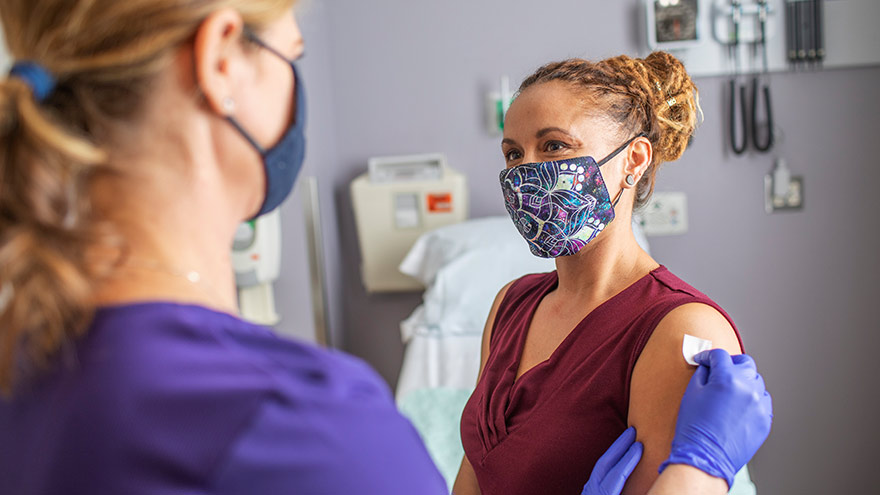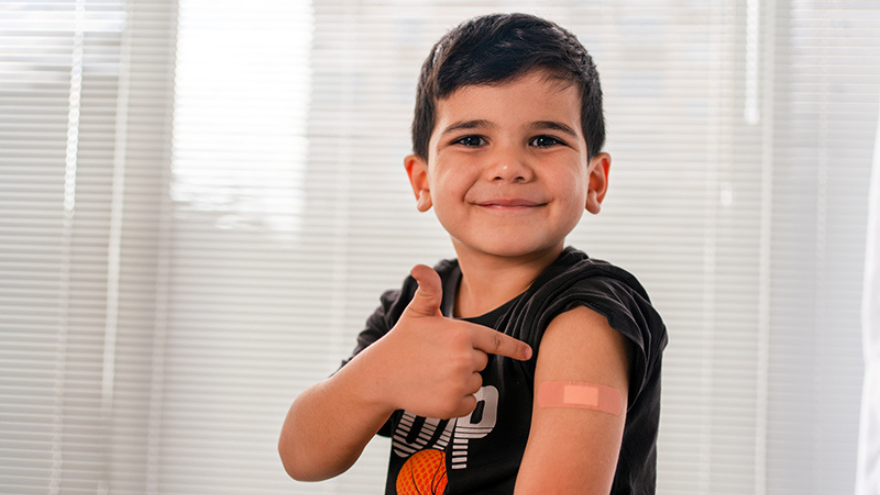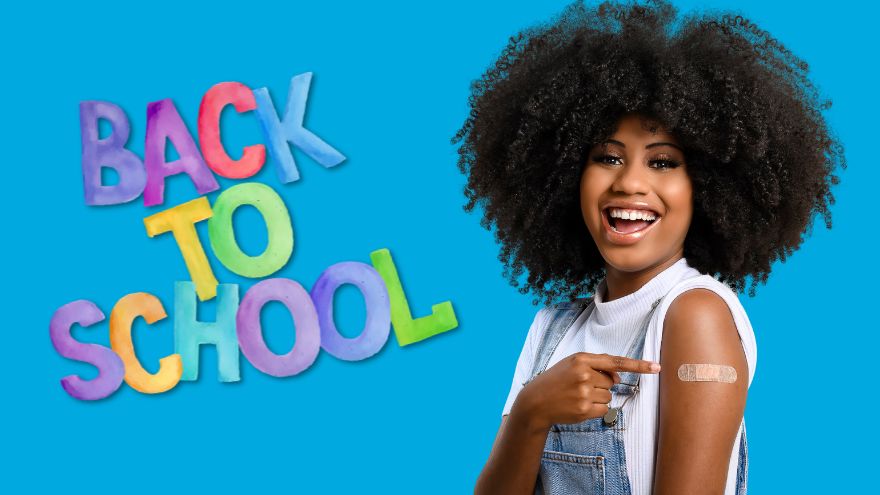Search
-
Cold and Flu 101: What You Need to Know
As the weather cools and the days grow shorter, many people find themselves battling seasonal illnesses. Two of the most common culprits are the flu and the common cold. We asked Marie McCormack, MD, Primary Care Division Chief at Renown, about flu prevention and how to know the difference between the flu virus and the common cold. How do you prevent the seasonal flu? The annual flu vaccine is truly the best form of protection to help prevent the spread of the flu. Even if you do get the flu after being vaccinated, your symptoms will be lessened. Flu vaccines are available to the community. You can schedule a flu shot with your Primary Care provider through MyChart or through the Renown Pharmacy. Visit renown.org/flu for more information. Who should get the flu shot? Almost everyone. The Centers for Disease Control and Prevention recommends a yearly flu vaccine for everyone 6 months of age and older as the first and most important step in protecting against influenza. Different flu shots are approved for people of different ages, but there are flu shots that are approved for use in people as young as 6 months of age and up. Flu shots are approved for use in pregnant women and people with chronic health conditions.
-
Slow the Spread of the Flu with Herd Immunity
As the leaves turn golden and the air gets crisper, it's not just pumpkin spice lattes that should be on your mind – it's also time to think about your health. Fall time also means it’s flu season and with new cases on the rise, we at Renown Health encourage you to do your part in keeping your Fall activities community safe. How can you protect your whole community you ask? Through something called Herd Immunity. We spoke with Renown Health infection prevention expert, Susanne James to talk about how getting your flu shot is vital for staying healthy and protecting your families and community.
Read More About Slow the Spread of the Flu with Herd Immunity
-
Protect Yourself and Others with the Flu Shot
Flu shots don’t just protect those who get vaccinated; they protect everyone, including your family and the community. As we continue navigating the COVID-19 (coronavirus) pandemic, Renown Health infection prevention expert Whitney Robinson explains how getting your flu shot is vital for staying healthy. 5 Ways to Schedule Your Flu Shot Call Us! 775-982-5000 Urgent Care Appointments Renown Pharmacy Vaccinations Make an Appointment via MyChart Need a Doctor? Find One Now Reasons to get the flu shot Chills, body aches, fever, congestion; getting the flu isn’t fun. But in addition to protecting yourself with a flu shot, you’re helping reduce flu cases and hospitalizations, Whitney said. Flu shots are currently available at pharmacies throughout the Reno area. Whitney says the ideal time to get your flu shot is September through October, but remain relevant throughout the winter months as it only takes two weeks for the antibodies to develop in your body. This timing allows the vaccine to provide the strongest protection during the length of flu season. Who needs a flu shot? Almost everyone. The Centers for Disease Control and Prevention recommends the yearly flu shot for everyone six months of age and older. Equally, they consider it the first and most crucial step in protecting against the flu virus.
Read More About Protect Yourself and Others with the Flu Shot
-
Protect Your Child’s Health with Timely Vaccinations
Why are timely vaccinations important? Childhood vaccinations are scheduled and vaccines are administered when young bodies require immediate protection or need to build immunity for diseases and illnesses we may encounter throughout our lives. Delaying recommended vaccinations puts children at higher risk for diseases that can affect them more harshly, like pertussis (whooping cough), which is especially dangerous for babies. Vaccination Benefits Vaccinations save the lives of 1,000s of children (and adults) every year Vaccinations protect us from illnesses that can lead to cancer, hospital stays, life-long health issues & even death Vaccinations help protect those who receive the vaccines and, through herd immunity, also help protect the unvaccinated and seniors whose immunity may have waned. What’s the recommended vaccine schedule for children? In the U.S., we follow the CDC’s vaccine schedule for children and teens up to 18 years of age. The schedule also provides notes regarding missed or late vaccine doses and how to properly “catch-up.” If your child is missing one of the vaccinations listed below, is not quite on-schedule with the recommended timeline or you have any questions regarding vaccines or timings, please reach out to your child’s provider. Vaccine Schedule Birth to 4 Years: Birth – First vaccine for hepatitis B and may receive respiratory syncytial virus (RSV)* vaccine 2, 4 & 6 months of age – Vaccines/boosters for tetanus, diphtheria and pertussis (DTaP), polio (IPV), haemophilus influenza type B (HiB), pneumonia, hepatitis B and rotavirus 6 months to 4 years of age – COVID-19 vaccine, 1-2 doses* 1 year of age – First dose of measles, mumps, rubella with varicella for chicken pox (MMRV) vaccine and boosters for hepatitis A, HiB and pneumonia 15 months of age – 4th dose of DTaP 18 months of age – 2nd dose of hepatitis A 4 years of age – Final dose of MMRV, TDaP and IPV vaccines *Conditions apply. See your child’s provider. Vaccine Schedule 5 Years & Older: CDC and American Academy of Pediatrics (AAP) also recommend the following vaccine schedule for children as they grow: Prior to starting middle school – TDaP and meningitis vaccines/boosters 9-12 years of age – AAP suggests children (and those up to 26 years of age who have not been adequately vaccinated) receive the HPV vaccine to help protect against developing certain cancers as adults Children up to 18 years of age & adults – COVID-19 vaccines are recommended, especially for those with medical conditions such as asthma and diabetes For more vaccination information, please refer to the CDC recommended child and adolescent immunization schedule. Any tips on preparing my child for a vaccination? Many parents worry about side effects like pain and fever for their children after getting vaccinations. Studies have shown that giving Tylenol prior to vaccines can decrease their effectiveness. That’s why providers recommend parents and caregivers wait until after vaccines are administered before giving Tylenol or Ibuprofen, and then only if symptoms develop. Do vaccinations wear off? Many vaccinations provide life-long immunity while others may wear off over time. Vaccines are given to children when they are at most risk for contracting diseases as well as when they are at the highest risk of severe complications from a disease. So even if immunity fades over time, it is important receive vaccinations on time to protect children during these high-risk windows. Doctor's Advice: Ensure Your Child's Health with Timely Vaccinations A child receiving a vaccination can be a scary thing for some parents and misinformation about vaccines on social media and the internet can make things confusing. It is important for parents to discuss any questions they have about vaccines with their child’s health care provider. As medical providers caring for children, we all have the common goal of keeping children the healthiest they can be – and vaccines are an important part of that. To schedule an appointment with a Renown provider, please go here and click here to learn more about Brittany Lemons, MD.
Read More About Protect Your Child’s Health with Timely Vaccinations
-
How the HPV Vaccine Protects Your Health
As the back-to-school season approaches, ensuring your child is ready for a successful academic year goes beyond school supplies and new clothes. It's also the perfect time to prioritize their health by ensuring they're up-to-date on essential vaccinations, including the HPV vaccine. We talked to Renown Pediatrician Dr. Kristin Wilson, to learn more about HPV and the importance of getting your child fully vaccinated. What is HPV? Human papillomavirus (HPV) is a common sexually transmitted disease. It can lead to the risk of several cancer diagnoses, with about 13 million Americans, including teens, becoming infected each year. Fortunately, a vaccine can prevent more than 90% of HPV cancers when given at the recommended ages. Talking about sexually transmitted infections can be uncomfortable, but learning how HPV is spread is important for prevention. Here's what you need to know about HPV: Transmission: HPV is spread via skin-to-skin contact. Types of HPV: Low/Medium-risk HPVs: Can cause warts and cervical dysplasia (abnormal cells on the cervix). High-risk HPVs: Can cause various cancers. HPV-related Cancers: Cervical cancer Anal cancer Vaginal cancer Vulvar cancer Penile cancer Oropharyngeal (mouth and throat) cancer Statistics: Men are four times more likely than women to suffer from HPV-associated oropharyngeal cancer. HPV is so common that nearly all sexually active people will be exposed at some point in their lifetime. Around half of HPV infections are of the high-risk variety.
-
3 Healthcare Musts for Millennials
Many millennials are fortunate to have good health, but it’s important to be prepared for your next doctor’s visit. Here are three things that millennials should stay on top of for tracking and maintaining their health. For many millennials, doctor visits and preventive healthcare fall by the wayside. Alison Lynch, MD, a family medicine provider with Renown Medical Group says there are a few key things you can do now to set yourself up for a healthy future. 1. Establish with a Primary Care Provider Millennials are more likely to go to urgent care or consult the internet when a healthcare issue arises. While these are helpful tools, here’s a better one: a primary care provider. The benefit of establishing with a primary care provider is that your medical records, history and a baseline for your health will be documented. That means that when a problem or question comes up, your doctor will already have helpful information on file and can help you navigate your needs. Having a primary care provider is often required for prescription refills and referrals to a specialist. By establishing now, you’ll be able to get what you need in the future much faster. Make an Appointment Today 2. Protect Yourself and Your Community There are a few vaccinations and screenings that Dr. Lynch recommends for millennials. Flu Shots: These are available every year and are recommended for protecting not only yourself against the flu but also others you may come into contact with. Flu shots are usually available from August through December through your healthcare provider, pharmacies and pop-up events. Tetanus or Tdap: Most people receive a tetanus shot as a child, but it’s recommended that everyone get a booster every 10 years. If you are overdue, talk to your primary care provider or pharmacist about getting updated. Pap smear: If you’re a woman, a pap smear is recommended every three years in your 20s and every five years in your 30s. HPV vaccine: This vaccine helps prevent the virus that causes cervical cancer as well as the majority of head and neck cancers and warts. The HPV vaccine is recommended for all genders up until age 45. STD screening: Consider an STI/STD screening if you’re sexually active.
-
Five Reasons to Switch to Renown’s Modern-Day Pharmacy
Renown Health has two retail pharmacy locations – one at Renown Regional on Pringle Way and another on Locust Street. And while many people think of a pharmacy as where we get prescriptions and pick up refills, it’s so much more. Adam Porath, vice president of pharmacy services at Renown, discusses five benefits of switching to a Renown Pharmacy. 1. Hospital Integration With the Meds-to-Beds Program, the Renown Health Pharmacy delivers prescriptions to patients on the floor when they leave the hospital. Another thing that is interesting about the pharmacy is its integration with providers. So, if there is a problem with your prescription, the Renown Pharmacy can get hold of your provider right away. We also can see your lab results and make sure that the dose you are prescribed is the right one. 2. On-Site Vaccinations The Renown Health Pharmacy has a private consultation area to administer vaccines on-site. Their team routinely stocks more than a dozen vaccines, and you can call either location (Regional: 775-982-7737 and Locust Street: 775-982-5280) to see if what you're looking for is in stock. Appointments are available in MyChart. 3. Compounding Services Only a fraction of pharmacies in the United States provides compounding services. In the Reno/Sparks area, there are just a few and Renown Pharmacy is one of them. Traditional retail pharmacies take drugs received from a drug manufacturer and put them into a smaller container in the individual amount that the doctor prescribed for a patient. A compounding pharmacy provides medications that are not available commercially. For example, a doctor has prescribed a dose that is smaller than what is commercially available. Compounding the medication will provide the dosage as prescribed. Another example could be a child who can’t take a tablet. The pharmacy may be able to use compounding to convert medications into something that is the child can take.
Read More About Five Reasons to Switch to Renown’s Modern-Day Pharmacy
-
COVID-19 Booster Shots, What You Need to Know
Getting the COVID-19 booster is the best way to protect yourself from severe illness or death due to COVID-19, and both the CDC and the FDA have approved booster shots for people ages 18 and older. So, with the holidays right around the corner and infection rates on the rise both in Nevada and nationally, the best thing you can do to prevent the continued spread of this deadly virus is to get boosted today. The Basics: Who: It is recommended that everyone 18 years or older get a COVID-19 booster shot. When: At least 6 months after completing your primary COVID-19 vaccination series. What: Any of the COVID-19 vaccines authorized in the United States. The CDC allows for mix and match dosing for booster shots. How: To make an appointment for your COVID-19 vaccine booster, please visit vaccines.gov today. Appointment Reminders: Don’t forget to bring your CDC vaccination record card to your appointment. Refresh yourself on the potential side effects and remember that these are normal signs your body is building up protection. Commonly Asked Questions: Q: Does anything change if I received the Johnson & Johnson as my first COVID-19 vaccine? A: If you received the Johnson & Johnson COVID-19 vaccine, you are elidable for a booster two months after completing your primary vaccine. Q: Is the formula the same for the boosters as it was for the primary vaccine? A: COVID-19 booster shots are the same formulation as the current COVID-19 vaccines. However, in the case of the Moderna COVID-19 vaccine booster shot, it is half the dose of the vaccine people get for their primary series. Q: Am I still considered “fully vaccinated” if I don’t receive a COVID-19 booster shot. A: Yes, everyone is still considered fully vaccinated two weeks after their second dose in a two-shot series, such as the Pfizer-BioNTech or Moderna vaccines, or two weeks after a single-dose vaccine, such as the J&J/Janssen vaccine. All information courtesy of the Center for Disease Control and Prevention. All information courtesy of the Center for Disease Control and Prevention
Read More About COVID-19 Booster Shots, What You Need to Know
-
How to Ease Your Child's Fear of Vaccines
Getting a shot can be scary for kids and anxiety-inducing for parents and caregivers. With flu shot season well underway and children's COVID-19 vaccine clinics in full swing, we wanted to share ways to reduce the stress for you and your child. Plan Ahead and Be Honest A few days before the scheduled appointment, casually mention to your child that you’re both going to the doctor’s office (or vaccine clinic, or pharmacy) soon for their vaccine. Explain to them that this will help protect them and will only take a second. Being honest is important, telling your child that it will hurt for a moment. If possible, try and schedule the vaccine at a kid-specific vaccine clinic, your pediatrician's office or a school-based site. Remember that words are powerful. Take notice if you are using a word that might make them more upset, such as prick, jab, needle or shot. You can interchange words such as vaccine, immunization or injection. Bring Toys Don’t be afraid to let your child bring one of their favorite toys or stuffed animals to the appointment. This can make them feel more comfortable and provide distraction. Ask for Pain Reliever/Numbing Agent If you know from past experience (or suspect) that your child has a needle phobia, talk to the vaccination location ahead of time and ask if they can use a pain reliever or numbing agent before administering the vaccine. Distract. Distract. Distract. Sing a song, tell them a joke, make a funny face. If you can pull your child’s attention away from the needle and make them laugh, they won’t focus all their energy on worrying about the shot. Lead By Example If you haven't gotten your flu shot, COVID shot or COVID-19 booster yet, ask the facility ahead of time if you can also get a shot before your child. Show them that the shot is no big deal and that they will have no problem getting it themselves. Celebrate Don’t be afraid to celebrate this victory with your child once it is over – bring them to the park, go out for an ice cream cone, let them pick what’s for dinner. This reward will show that you’re proud of them for being brave and may also make the next time your child is due for a shot easier.
-
MyChart Proxy Access
What is Proxy Access? Proxy access allows parents, legal guardians and caregivers to log into their personal MyChart account and connect to the health information of a patient they represent. As a proxy, you can view upcoming appointments, request appointments, view lab results, email a doctor on the patient’s behalf, view medications, request prescription refills and view health reminders. How Do I Establish Proxy Access? Login to your MyChart account with your username and password Go to the Profile menu at the top of the screen, then select Personalize From this screen you can see whose records you currently have access to Click Request Access to a minor’s chart Complete all of the fields When finished click Submit Request What if I Don’t Have a Renown MyChart Account? If you don’t have a Renown MyChart account, call 775-982-2781 and someone from the Renown Health MyChart team can help you set up proxy access. Keep in mind, the ability to request proxy access is only available on the MyChart website and not via the mobile app. However, the website can be accessed with your smartphone or tablet by using the web browser and going to mychart.renown.org.
-
How You Can be a COVID-19 Vaccine Ambassador
We get it – the entire world has been overwhelmed with COVID-19 vaccine information, questions and celebrations around vaccines developed to combat COVID-19 induring the past several months. It’s hard to know where to start in digesting all this news and information. But one thing is clear: healthcare experts agree that the authorized COVID-19 vaccines are safe, effective and recommended to help end this pandemic. If you are passionate about stepping up in your community to encourage the vaccination efforts, we’re offering a few ideas on how you can be an ambassador. Find the Facts Content on the vaccine is abundant, but and there’s a few resources that we can all rely on to help digest the information: The Centers for Disease Control (CDC) updates its website content around the vaccine regularly, and also offerings information in Spanish. Health departments across the U.S. are leading the way in distribution logistics planning, and partnering with other providers, like such as hospitals and pharmacies, to distribute give people doses. Their websites are great resources to understand options where you live. Locally, check out washoecounty.gov/health/programs-and-services/environmental-health/covid-19-guidance for vaccine updates in Washoe County. Many providers like Renown Health and other providers are sharing content around their recommendations for the vaccine. Get answers about the vaccine types from one of our pharmacists, read common concerns addressed by experts and view videos from many doctors and other specialists on our YouTube Channel.
Read More About How You Can be a COVID-19 Vaccine Ambassador
-
Pharmacists Answer Questions about the COVID-19 Vaccines
Vaccines that provide protection against the COVID-19 virus are bringing us closer to the end of this deadly pandemic. Two different COVID-19 vaccines are currently available in the U.S. today: one from Pfizer and the other from Moderna. Kate Ward, PharmD, BCPS, Director of Clinical Pharmacy at Renown Health and Adam Porath, PharmD, Vice President of Pharmacy at Renown, share what you need to know about these vaccines. When two COVID-19 vaccines were approved by the U.S. Food & Drug Administration (FDA) in December 2020, it was cause for celebration. Why? Because according to the CDC, the vaccines are 94 percent or more effective in providing protection against the COVID-19 virus! Many people are seeking information about the new Moderna and Pfizer vaccines. Below, our pharmacy leaders provide answers to some commonly asked questions. How do the COVID-19 Vaccines Work? The Pfizer and Moderna vaccines are both mRNA vaccines that help your immune system develop antibodies against the COVID-19 virus. The vaccines use messenger RNA, or mRNA, to show our bodies’ protein-making cells how to make the spike proteins of the COVID-19 virus. Our immune system reacts to these spike proteins by creating antibodies that can recognize and destroy them. So when a person is exposed to the virus in the future, they will be less likely to get sick. What are the Differences between the Pfizer and Moderna Vaccines? The Pfizer and Moderna COVID-19 vaccines are very similar, with just a few small differences worth noting. The main difference between the two vaccines is when you should receive your follow-up dose. Patients who receive a first dose of Pfizer should receive their second dose about three weeks later. Those who receive a first dose of Moderna should receive their follow-up vaccination roughly four weeks after their first dose. People 18 years and older can receive the Moderna vaccine while people 16 years and older can receive the Pfizer vaccine. Dosage for the Moderna vaccine is 0.5 ml (100 mcg). Dosage for the Pfizer vaccine is 0.3 ml (30 mcg).
Read More About Pharmacists Answer Questions about the COVID-19 Vaccines











